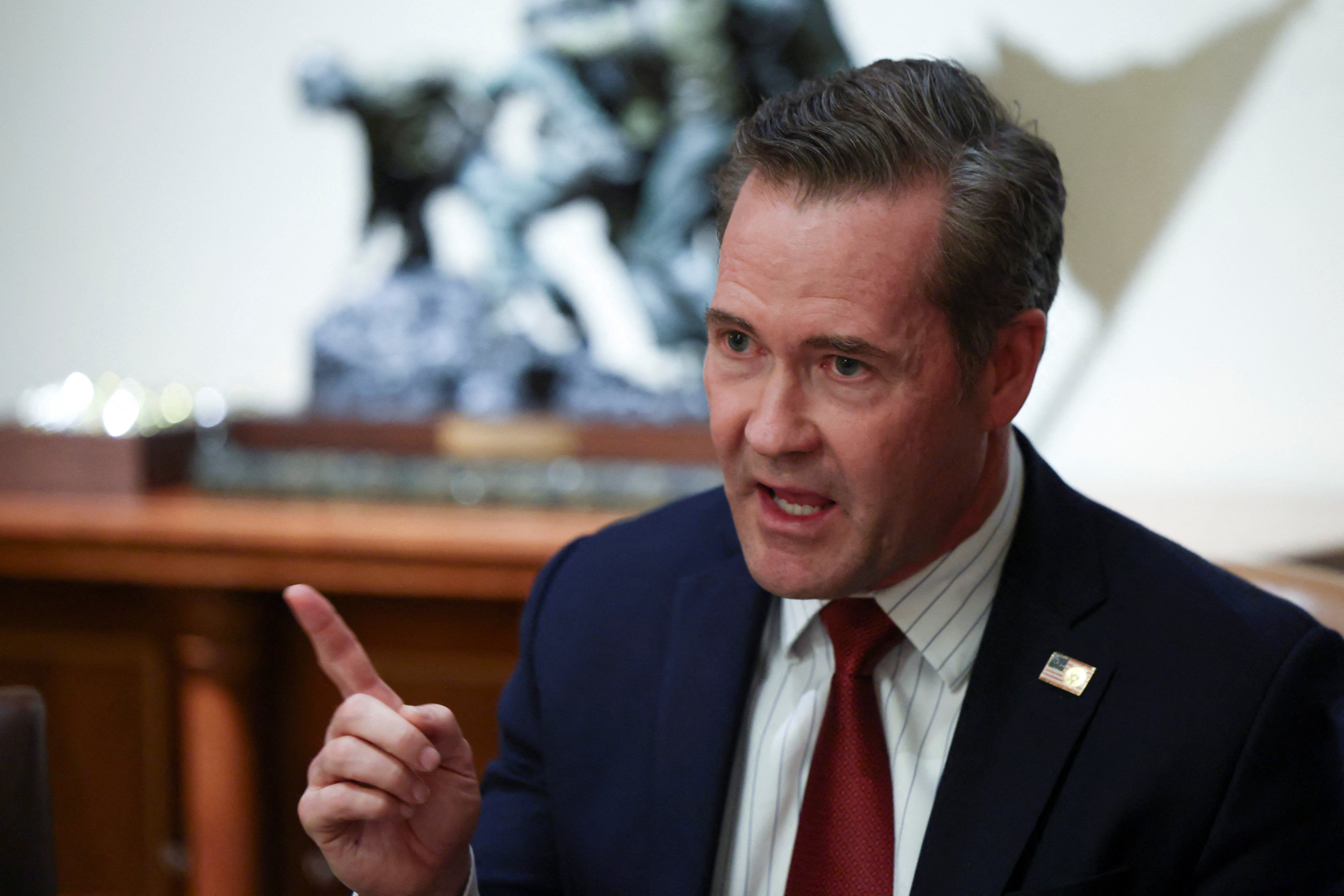An internal investigation has revealed how a reporter wound up becoming looped into a group chat involving high-level Trump administration officials discussing plans for a military operation hours before it was launched.
National security adviser Mike Waltz inadvertently added The Atlantic's editor in chief Jeffrey Goldberg, who later reported on the surprise invitation that made him privy to the top-secret war plans, and three sources briefed on the matter told The Guardian how the journalist was mistakenly added to the discussion carried out on the third-party Signal messaging app.
"According to three people briefed on the internal investigation, Goldberg had emailed the campaign about a story that criticized Trump for his attitude towards wounded service members," the publication reported. "To push back against the story, the campaign enlisted the help of Waltz, their national security surrogate."
ALSO READ:'Looked at my 401(k) and gasped': Newsmax host shocked after tariffs hit personal wealth
A “forensic review” conducted by the White House information technology office then found that Goldberg's email was then forwarded to Trump spokesperson Brian Hughes, who then copied and pasted the contents of the email, including the journalist's signature block with his phone number, into a text message he sent to Waltz.
"Waltz did not ultimately call Goldberg, the people said, but in an extraordinary twist, inadvertently ended up saving Goldberg’s number in his iPhone – under the contact card for Hughes, now the spokesperson for the national security council," The Guardian reported.
The White House claims the editor's number was saved by mistake during a “contact suggestion update” by Waltz’s iPhone, with one source saying his phone adds an unknown number to an existing contact it detects could be related, and Waltz himself claims Goldberg's number was somehow "sucked" into his device.
"The mistake went unnoticed until last month when Waltz sought to add Hughes to the Signal group chat – but ended up adding Goldberg’s number to the 13 March message chain named 'Houthi PC small group,' where several top U.S. officials discussed plans for strikes against the Houthis," The Guardian reported.
Waltz has survived calls for his firing over his use of Signal because the White House had authorized use of the non-secure platform, which automatically deletes messages after they've been read, because the administration, like its predecessor, had not developed an alternative platform to text in real time across multiple agencies, two sources said.
"As a temporary solution, the Trump White House told officials to use Signal as they had done during the transition instead of regular text-message chains," The Guardian reported.
The White House did not comment on the report, and sources said the investigation did not determine the extent of Waltz's relationship with Goldberg, who offered a brief comment on the topic.
“I’m not going to comment on my relationship with Mike Waltz beyond saying I do know him and have spoken to him," Goldberg said.
